Example projects from and across our SSRI and CTSI teams include the following.
Project Focus:
Community | Campus/Educational | Health and Medical Partnerships
Community-Based/Community-Aligned
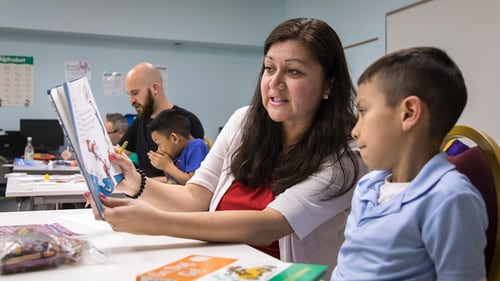
Providing instructional support in high-need, high-turnover school districts (Wolfpack WORKS Literacy Initiative)
In 2018, North Carolina’s Department of Public Instruction (DPI) and the College of Education at North Carolina State University (NCSU) launched a 16-district initiative to improve literacy instruction in high-need, high-turnover school districts. SSRI has partnered with this initiative since its inception to better understand its implementation and effects on participating teachers and students. SSRI has worked with initiative leadership to determine key interested in research and evaluation; designing empirical processes with an array of data sources (e.g., surveys, interviews, and use of large-scale administrative records); and analyzing data and synthesizing key findings inform ongoing decision-making.

Understanding the effects of music programming on youth development and social change/ Kidznotes
Kidznotes, a Triangle-based following the international El Sistema model, works to effect social change through ensemble orchestral education for through traditionally underserved youth. SSRI has collaborated with Kidznotes as a research and evaluation partner since 2016, including initiating a randomized study assessing effects using student performance tasks, surveys, and academic administrative data; SSRI successfully led development of funding proposal for these efforts and overseen this project’s implementation. This partnership embodies a responsive research-practice partnership, whereby research and evaluation efforts are directly and collaboratively informed by an applied partner’s needs and interests.

Informing Appalachian girls’ development / PAGE (Partnership for Appalachian Girls’ Education)
The PAGE (Partnership for Appalachian Girls’ Education) program, founded in 2010, was developed to inspire and empower underserved rural girls through education. At its demonstration site in Madison County, North Carolina, in the heart of the Blue Ridge Mountains, PAGE offers learning opportunities for rural girls entering grades 6-12. With these learning opportunities, PAGE aims to provide girls with 21st century skills – for instance, creative critical thinking, digital technology capabilities, and high-level literacy – that they can ultimately invest back into their future families and into North Carolina’s mountain communities. SSRI partners with the PAGE initiative in applied research and evaluation in a multi-year engagement to develop program theory and implement specific mixed-methods empirical processes to inform ongoing learning and improvement.
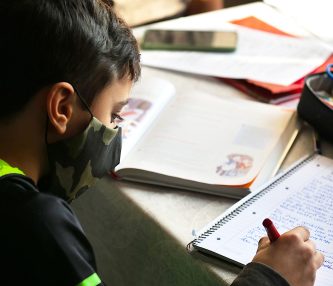
Implementation, Impact and Expansion of North Carolina Leadership Forum (NCLF) Initiative
The North Carolina Leadership Forum (NCLF), based at Duke University, provides an opportunity for civic, business and political leaders from across North Carolina to discuss issues central to the future of our state. SSRI has partnered with the North Carolina Leadership Forum (NCLF) to better understand the implementation and impact of its work on participants and policy-making processes.

Academic effect of the Durham Children’s Initiative (Durham Children’s Initiative, in partnership with Duke Center for Child and Family Policy)
The Durham Children’s Initiative (DCI) is a cradle to college and career pipeline of high-quality services for youth and their families. SSRI has partnered with Duke Center for Child and Family Policy to understand the potential effect of DCI participation on youth educational outcomes.

Informing development and understanding effect of the North Carolina Education Corps (NCEC)
North Carolina Education Corps (NCEC) is a state-wide entity that partners with local public-school units (PSUs) to recruit, train, and support corps members to support students and accelerate learning. NCEC is a response to the impact COVID-19 is having on schools, as students struggle to keep up with learning. SSRI has partnered with NCSU’s Friday Institute to serve as evaluation partners for NCEC, with an aim to inform strategic decision-making and understand initiative impact for schools, Corps members, and students.

Exploring and Interrogating the State of the South (MDC)
Over five decades, MDC projects has helped the South improve education, employment, economic security and philanthropic outcomes. Starting in 2022, SSRI is partnering in with MDC to inform understanding of numerous social indicators and challenges across the South, including with focus and partnership in MDC’s signature State of the South initiative.

Informing Made in Durham development (Made in Durham)
Made in Durham is a community partnership of educators, business, government, youth-serving nonprofits and young people mobilized around a shared vision that all of Durham’s youth will complete high school and a post-secondary credential and begin a rewarding career by the age of 25. SSRI has partnered with Made in Durham with focus on informing their efforts to support disengaged youth (those at risk of leaving school prior to completing secondary education), including a specific collaboration of educational entities serving this specific population.
Duke Campus and Educational Initiatives

Innovating humanities education (Humanities Unbounded)
In 2018, Duke University received a multi-million-dollar award from the Andrew W. Mellon Foundation to nurture collaboration and inventive expressions of the humanities at Duke and beyond. The initiative offers increased opportunities for students to collaborate with faculty and other students by participating in research-based humanities labs. The initiative aims to generate flexible pathways that will enrich Duke students’ humanistic thinking and sustainably embed collaborative research and pedagogy in the areas that most directly shape undergraduate learning. SSRI has partnered with this effort since its inception in its evaluation and assessment aims, with a core focus on intentional and iterative design that speaks to an innovative and evolving initiative. Collaboration has included development of the theory of change and specific data collection and analysis activities, all with a core focus on understanding implementation and improving efficacy at a structural level.

Addressing the gender gap in computational science education and careers (Duke Technology Scholars Program – DTech)
Science, technology, engineering, and math (STEM) disciplines, including computer science (CS) are known for low rates of female matriculation and retention in comparison to other fields, and this gender gap in CS education also translates into a gender gap in the professional world. The Duke Technology Scholars Program (DTech), a partnership between Duke’s Trinity College of Arts & Sciences and Pratt School of Engineering, aims to address this disparity through a focus on women in their undergraduate years. The program prioritizes relationships, mentorship and hands-on experience to recruit and retain such individuals in technology fields. Since this initiative’s inaugural year, SSRI has partnered in formative and summative evaluation and related mixed-methods applied research to examine the effects of this initiative on its participants, and it has partnered in the development of related grants and proposals. This has provided the initiative with evidence of effectiveness as well as key information to inform decision-making, and it inform the broader field of efforts in addressing gender inequities in STEM education and careers.

Building design and project-based learning into engineering education, starting freshman year (Duke Pratt First-Year Design Initiative)
Historically, the first year of engineering education has had little engineering; instead, courses for students have been foundational courses in math, physics, chemistry, and biology. The new course Engineering Design and Communication engages all first-year students in an authentic, hands-on, project-based design course. Student teams engage in the engineering design process and build low- and medium-fidelity prototypes to solve a community-based need or problem. SSRI has partnered with Pratt to understand the effect of this pedagogical redesign on students’ short-term and long-term academic development.

Informing learning and evaluation design for undergraduate civic engagement programming (DukeEngage)
Through DukeEngage, students and faculty collaborate with communities – locally and globally – to address critical social issues through an immersive summer of community engagement. SSRI has partnered with DukeEngage to understand participants’ experience and inform evaluation direction for ongoing program learning and improvement.

Examining implementation and impact of interdisciplinary data science graduate programming (MIDS)
The Duke University Master in Interdisciplinary Data Science (MIDS) is home for creative problem solvers who want to use data strategically to advance society. The program seeks to cultivate a new type of quantitative thought leader who uses computational strategies to generate innovation and new insights; it combines rigorous computational and technical training with field knowledge and repeated practice in critical thinking, teamwork, communication, and collaborative leadership to generate data scientists who can add value to any field. SSRI has partnered with MIDS since its inception to design and implement its evaluation processes for ongoing learning and understanding of impact.

Informing Direction for Duke Campus Farm (Duke Campus Farm)
The Duke Campus Farm is a one-acre working farm owned and operated by Duke University that provides sustainably-grown produce and food systems education for Duke and its surrounding communities. More important than the thousands of pounds of food that we grow, however, are the opportunities the farm provides for engaging and reimagining the ways we cultivate, access, value, and think about food. Its mission is to catalyze positive change in the food system. SSRI has partnered with Duke Campus Farm in formative evaluation to inform strategic planning, with particular focus on mechanisms for integration into and alignment with other university initiatives and entities.
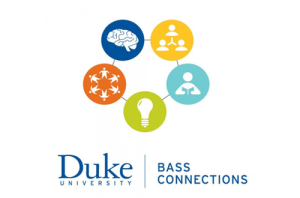
Equitable University Community Research Partnerships
Collaborative research partnerships between institutions of higher education and local communities offer a valuable form of scholarship and a transformative approach to teaching and learning. Yet ethical and effective university-community research collaboration is complicated by numerous factors: university incentive structures, rigid research processes, lack of community clarity on academic processes and power dynamics that challenge partners’ willingness to voice concerns. Our Bass Connections team and project aims to address the following questions: What are current practices and processes of research partnership with at Duke and in the Durham community? How are partnerships initiated and structured, and what prompts these processes? What challenges are experienced in partnership processes? What are key indicators and facilitators of fruitful partnerships? We explore these questions through interview and survey-based data collection with Duke researchers and community partners.
Health, Healthcare, and Medical Partnerships:

Reducing Ethnoracial Disparities in Cardiac Arrest Survival Outcomes (with St. Luke’s Hospital (MO), University of Iowa)
The public health burden of out-of-hospital cardiac arrest (cardiac arrest happening outside of a hospital; OHCA) affects approximately 350,000 individuals each year in the U.S. and is the third leading cause of death, and Black and Hispanic patients have lower survival rates for OHCA than White patients. There are some Emergency Medical Services (EMS) agencies who serve in majority Black or Hispanic communities and do show high success, but little is known about how they overcome barriers to OHCA response and care. In this NIH-funded project, we address these critical gaps and to lay the foundation for efforts to reduce disparities in OHCA survival. Our group is specifically focused on utilizing qualitative methods, within a mixed-methods design, to identify effective practices at top-performing EMS agencies, including those that work in majority Black or Hispanic communities.

Clinical Communication and Shared Decision-Making of Machine Learning-Based Prediction Models (with Biostatistics and Bioinformatics)
Machine learning-based clinical prediction models (CPMs) have proliferated over the past few years, becoming a central component of healthcare. These tools show great promise in informing both providers and patients of impending health outcomes, ultimately allowing for greater personalization of patient care. Importantly, there are a number of ethical concerns inherent in machine learning-based CPMs. Among these, it is important to understand how best to convey this information in an effective, sensitive, and ethical manner to patients. In this NIH-funded project, we use qualitative data collection across multiple stakeholders – patients, caregivers, medical and non-medical providers and data scientists – we explore end-use and communication factors that can facilitate ethical communication and use of CPM for shared decision-making, and we develop practice-oriented guidance to advance utilization of this learning across data science and clinical communities.

Augmenting supports for underrepresented faculty (Office for Faculty, Duke School of Medicine)
Both at Duke and beyond, the limited presence of racial/ethnic underrepresented faculty and challenges experiences by women faculty are well-documented for medical faculty. To address this issue, the Office for Faculty at the Duke School of Medicine (Duke SOM) has developed specific efforts focused on supporting underrepresented faculty. SSRI has partnered with this initiative in formative and summative evaluation, with empirical data collection intended to inform the initiative’s direction and activities. SSRI’s partnered in design and in logic model development; oversaw empirical aspects of this work, including a stratified focus group design; and analyzed data and reported findings, including internal program improvement and external dissemination.

Developing a drone-delivered defibrillator network (Duke SOM Cardiology)
Out of hospital cardiac arrest is a frequently-lethal complication of many common types of serious heart diseases, but because of the delay in getting effective defibrillation to the patient, most are already beyond help when help arrives. The concept of using drones to deliver defibrillators to the scene of a witnessed cardiac arrest has generated much interest, but no benefit will be achieved unless the human factor is well understood and properly managed; medical drones delivering life-saving technologies are not something the public is currently familiar with, and the creation of a new regional drone network itself presents challenges in community acceptance and use. Duke Health cardiologists leading this effort partnered with SSRI to examine this “human factor”. SSRI implemented a pilot study that addressed perspectives of key community stakeholders and informants, ranging from EMS personnel to political leadership, to uncover concerns and challenges to the successful implementation of such a network.

Building a new generation of interdisciplinary health researchers / Duke Health BIRCWH & KURe programs (w/ Duke BIRCWH and KURe programs)
NIH funds numerous institutional initiatives to develop early career researchers; this includes the BIRCWH program, focused on interdisciplinary women’s health researchers, and the KURe program, focused on benign urology researchers. SSRI has partnered with these initiatives at Duke to provide empirical and evaluative support to better understand the effect of the program on scholars’ development. This partnership has focused on the establishment of a clear conceptual framing and data collection infrastructure that can serve these initiatives into future years, as well as inform evaluation and \ research design for scholar development initiatives more broadly.

Support Diversity in Biomedical Careers via new Post-Bac Supports (w/ Duke Office of Physician Scientist Development)
Scientists from under-represented minorities (URM) are more likely to conduct research with significant public health implications in diseases that disproportionately affect minority populations. While ample evidence supports the value of diversity among team members to drive the generation of innovative ideas and approaches, the U.S. biomedical research workforce continues to suffer from systemic barriers causing insufficient diversity, perpetuating inequity, and limiting inclusion. Duke University’s Office of Physician Scientists Development (OPSD) had launched an initiative to support and advance URM individuals who have biomedical career interests, have or are completing undergraduate degrees, and are considering or will be pursuing graduate degrees. In particular, OPSD intends to develop a post-baccalaureate program to support students’ acceptance to, and success in, biomedical graduate degree programs. To inform this program’s development, OPSD has partnered with Duke’s Social Science Research Institute (SSRI) to conduct a formative evaluation, as form of applied research, to determine areas of need among undergraduates and recent graduates at diverse academic institutions who are interested in biomedical careers.

Evaluation to Advance Healthcare Innovation (Duke Institute for Healthcare Innovation)
The mission of the Duke Institute for Health Innovation (DIHI) is to catalyze transformative innovations in health and healthcare, and to help cultivate a community of innovation and entrepreneurship across Duke University and the health enterprise. SSRI has partnered with DIHI to provide their projects/grantees learning sessions and advising to DIHI in evaluation and measurement. This included partnership with DIHI in implementing SSRI’s undergraduate Social Science Research Lab.

Advancing Care for Children with Medical Complexity: Evaluation of Parent Experience and Early Outcomes from a Pilot Mobile Complex Care Plan (Duke Pediatrics)
Children with medical complexity (CMC) often receive fragmented care. Comprehensive care plans are frequently recommended; however, no gold standards exist to guide implementation. Mobile health innovations integrated with electronic health records (EHR) could improve care plan implementation. SSRI partnered with Duke Pediatrics to evaluate feasibility of mobile complex care plans (MCCP) implemented within a complex care program for CMC, and to study the impact of MCCPs on parent engagement, parent experience, and care coordination.

Improving Workplace Well-being among Pediatric Physicians (Duke Pediatrics)
Reports of physician burnout have reached alarming rates, and most interventions focus on the individual. Emphasis on burnout distracts from consideration of workplace environment and related drivers as contributors to the potential to thrive and engage. Shifting the focus from physician burnout to the workplace is a practical approach towards meaningful improvement. SSRI partnered with Duke Pediatrics to identify key drivers of workplace satisfaction, with focus on factors leading to burnout and/or workplace dissatisfaction among faculty in the Dept. of Pediatrics and strategies that could be used to alleviate burnout and/or improve workplace well-being.

CTSA IMPROVES (Implementation, Progress, Value, Strategy) Quarterly Update
We have initiated and redeveloped a continuous improvement metrics process within Duke University’s Clinical and Translational Science Institute (CTSI). Previously, the structure and information in the quarterly metrics reporting hampered feedback between leadership and staff; this based on the focus on numeric output metrics and relative lack of context for these metrics, as well as limited understanding of path toward use for those providing or reviewing this information. To improve the continuous improvement metrics process, we focused on a use-oriented approach, including integration and education of program staff in development, and utilizing a mix-method approach. This approach helped to demystify data for teams by making the report more understandable, accessible, by including them in the creation of the evaluation process.

Translational Research Case Studies
Our group has initiated a case studies series that provides a direct lens on research projects developed and/or supported by the NIH Clinical and Translation Science Award (CTSA). This case study series uses the Translation Scientist Benefits Model (TSBM), a framework intended to assess the impact of research that applies scientific findings to enhance public health and well-being. The purpose of the case study is to provide a contextualized lens on CTSA services by conveying their use within specific studies and research projects, provide a clear summative focus addressing translational research outcomes and impacts, permit understanding of inhibitors or challenges in process that CTSA may be situated to address, disseminate facilitators or best practices for improving translational research. Case studies were developed in partnership with the Institute of Clinical and Translation Sciences (ICTS) at the School of Medicine and the Brown School at Washington University in St. Louis.
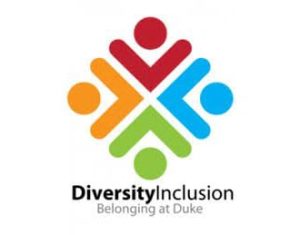
Research Equity and Diversity Initiative (READI)
In 2021, Duke received a grant from The Duke Endowment to establish a culturally relevant outpatient clinical research site and develop a community outreach initiative to improve health and decrease health disparities. The resulting initiative, Research Equity and Diversity Initiative (READI), builds upon new and existing community strengths, assets, and partnerships to build trust through bidirectional co-learning and community-based outreach and education with community experts; it works to help improve community health by making it easier for researchers and community members to collaborate on research that will improve health. READI’s goal is to remove barriers, build trust, and increase diversity in research participation and the research workforce. We have partnered to lead evaluation efforts with and for READI; this includes examining changes in diversity in research participation and examining research participation experience, as well as providing evaluative guidance and support in other aspects of this initiative (e.g., investigative team engagement and benefit, workforce development efforts, community-partnered research development efforts).
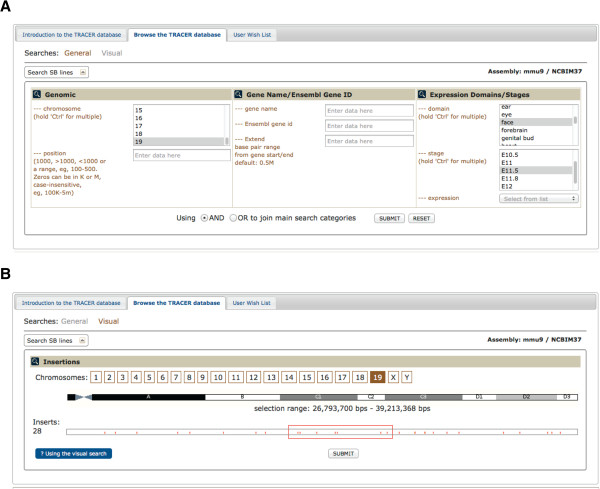
TRACER: Translational Research Accomplishments Cataloger
Historically within the Duke Clinical and Translational Science Institute (CTSI), the process of collecting, analyzing, and reporting information about projects, activities, and progress has been time consuming, subject to limited and missing data, and has provided little benefit in understanding the impact and value of measurable action items. Because of this, our team is currently collaborating with informatics colleagues to develop the Translational Research Accomplishments Cataloger (TRACER), a database with the ability to document achievements such as project milestones as well as the translation benefits. TRACER additionally aims to help to reduce the reporting burden within Cores and programs by giving leadership the ability to pull data and information as needed, and it provides an ability to examine implementation, progress, and results within and across diverse teams within the Institute.

